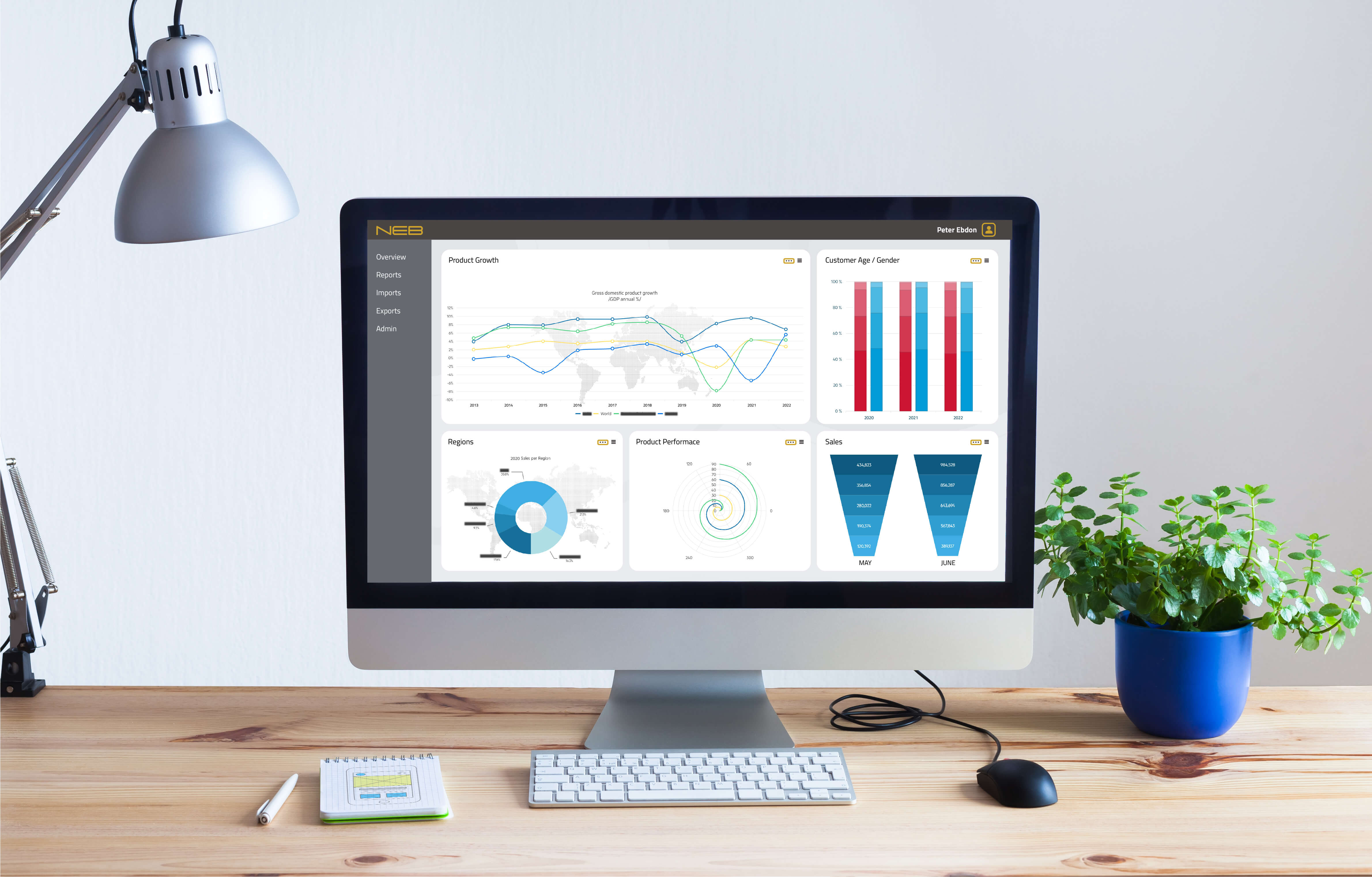
Business Intelligence Software for Efficient Business Solutions
In today’s fast-paced and competitive business landscape, organizations are constantly seeking ways to improve their operations, increase efficiency, and gain a competitive edge. One effective way to achieve these goals is by leveraging Business Intelligence (BI) software. BI software enables companies to collect, analyze, and interpret complex data from various sources, providing valuable insights that inform strategic decision-making.
What is Business Intelligence Software?
Business Intelligence software is a type of application that helps organizations to collect, store, analyze, and visualize data from various sources, such as customer interactions, sales, marketing, and operational processes. The primary goal of BI software is to provide users with a comprehensive and unified view of their organization’s performance, enabling them to identify areas of improvement, optimize operations, and make data-driven decisions.
Key Features of Business Intelligence Software
Modern BI software typically includes a range of features that enable organizations to collect, analyze, and visualize data. Some of the key features of BI software include:
- Data Integration: The ability to collect and integrate data from various sources, such as databases, spreadsheets, and external data sources.
- Data Analysis: The ability to analyze data using various techniques, such as statistical analysis, data mining, and predictive analytics.
- Data Visualization: The ability to present data in a clear and intuitive format, such as reports, dashboards, and charts.
- Reporting: The ability to generate reports on a regular basis, such as daily, weekly, or monthly, to provide insights into organizational performance.
- Predictive Analytics: The ability to forecast future trends and patterns based on historical data.
Benefits of Business Intelligence Software
The benefits of using BI software are numerous and well-documented. Some of the most significant advantages include:
- Improved Decision-Making: BI software provides users with accurate and timely insights, enabling them to make informed decisions that drive business success.
- Increased Efficiency: BI software automates many manual tasks, such as data collection and analysis, freeing up staff to focus on higher-value tasks.
- Enhanced Customer Experience: BI software enables organizations to gain a deeper understanding of customer behavior and preferences, enabling them to deliver more personalized and effective customer experiences.
- Competitive Advantage: Organizations that use BI software are better equipped to respond to changing market conditions and competitor activity, giving them a competitive edge.
- Cost Savings: BI software can help organizations to identify areas of inefficiency and waste, enabling them to reduce costs and improve profitability.
Types of Business Intelligence Software
There are several types of BI software available, each with its own unique characteristics and features. Some of the most common types of BI software include:
- Cloud-Based BI: Cloud-based BI software is hosted in the cloud, providing users with access to BI tools and data from anywhere, at any time.
- On-Premise BI: On-premise BI software is installed and hosted on an organization’s own servers, providing users with full control over data and security.
- Self-Service BI: Self-service BI software enables users to create their own reports and analyses, without the need for IT support.
- Big Data Analytics: Big data analytics software is designed to handle large volumes of unstructured and structured data, providing insights into complex data sets.
Choosing the Right Business Intelligence Software
With so many BI software options available, choosing the right one can be a daunting task. When evaluating BI software, organizations should consider the following factors:
- Data Sources: Consider the types of data sources that the BI software can connect to, such as databases, spreadsheets, and external data sources.
- Data Analysis: Consider the types of data analysis that the BI software can perform, such as statistical analysis, data mining, and predictive analytics.
- Data Visualization: Consider the types of data visualization that the BI software can provide, such as reports, dashboards, and charts.
- Scalability: Consider the scalability of the BI software, including its ability to handle large volumes of data and user traffic.
- Security: Consider the security features of the BI software, including data encryption, access controls, and user authentication.
Implementation and Integration
Implementing and integrating BI software requires careful planning and execution. Some key considerations include:
- Data Quality: Ensure that data is accurate, complete, and consistent, to provide reliable insights.
- User Training: Provide users with training and support, to ensure that they can effectively use the BI software.
- Integration with Existing Systems: Integrate the BI software with existing systems, such as CRM and ERP, to provide a unified view of organizational performance.
- Monitoring and Maintenance: Regularly monitor and maintain the BI software, to ensure that it continues to meet organizational needs.
Real-World Examples of Business Intelligence Software
Many organizations have successfully implemented BI software to drive business success. Some examples include:
- Walmart: Walmart uses BI software to analyze customer behavior and optimize its marketing and sales strategies.
- Amazon: Amazon uses BI software to analyze customer purchasing habits and provide personalized product recommendations.
- Cisco: Cisco uses BI software to analyze sales data and optimize its sales strategies.
- IBM: IBM uses BI software to analyze customer behavior and provide personalized customer experiences.
Conclusion
Business Intelligence software is a powerful tool that enables organizations to collect, analyze, and interpret complex data from various sources. By leveraging BI software, organizations can gain valuable insights into their operations, customers, and market trends, and make informed decisions that drive business success. When evaluating BI software, organizations should consider factors such as data sources, data analysis, data visualization, scalability, and security. With careful planning and execution, BI software can be a valuable asset for any organization seeking to improve its operations, increase efficiency, and gain a competitive edge.
Closure
Thus, we hope this article has provided valuable insights into Business Intelligence Software for Efficient Business Solutions. We thank you for taking the time to read this article. See you in our next article!


